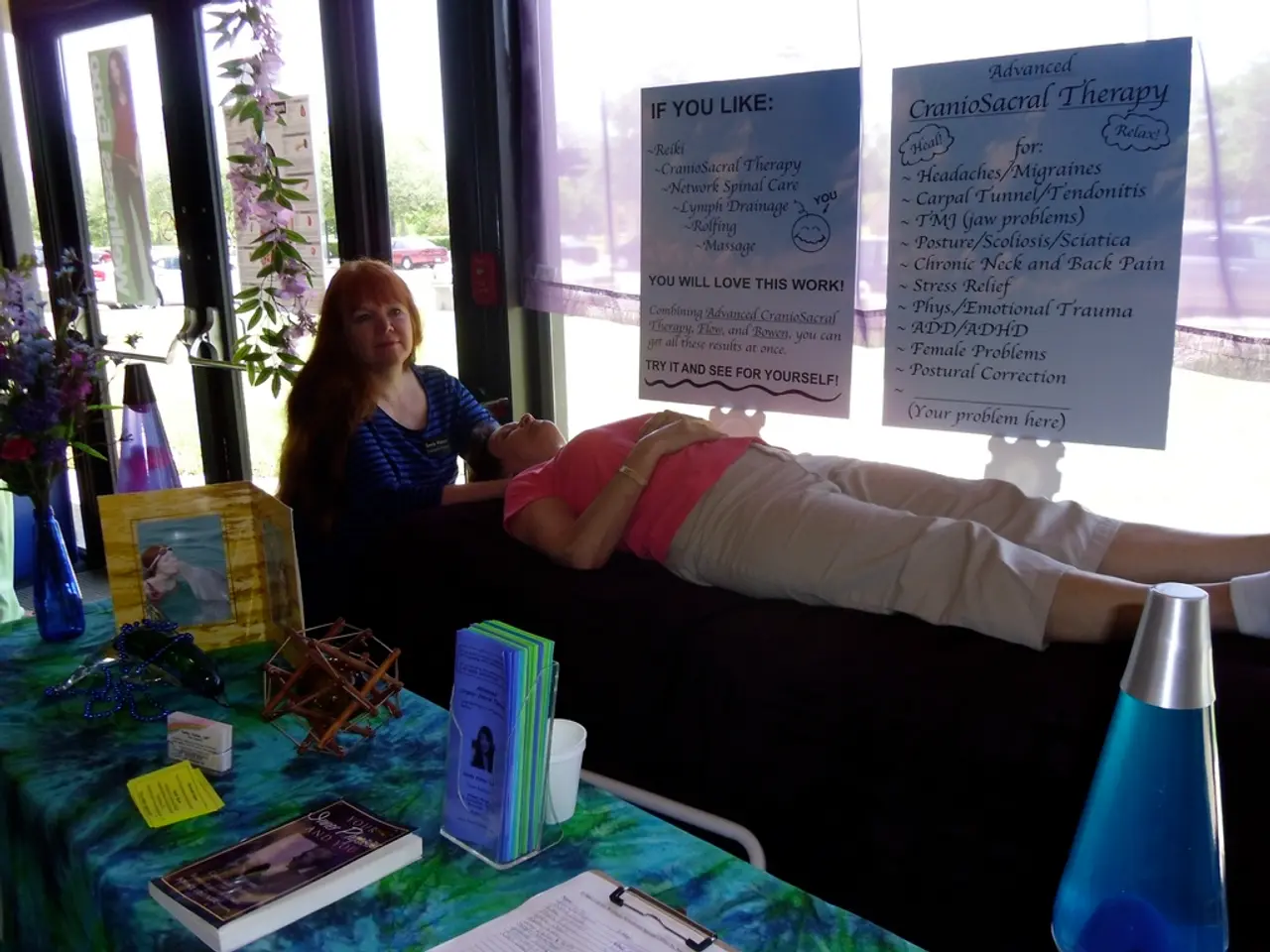Linking Mental Well-being and Strong Interpersonal Ties
In today's world, maintaining healthy relationships is crucial for overall well-being, particularly when it comes to mental health. A supportive partner can provide a sanctuary during tough times, helping individuals cope with stress, anxiety, and other mental health challenges.
A strong social support system, including a healthy romantic relationship, can significantly reduce the risk of developing mental health issues. Building and maintaining such relationships requires a holistic approach that acknowledges mental health as an integral part of the dynamic.
One key approach is to build on mutual love and respect. Choosing partners you already appreciate and respect, and focusing on nurturing trust and emotional intimacy, creates a strong foundation that supports resilience through life's challenges. Effective communication, prioritizing honesty, empathy, active listening, and being comfortable with silence or nonverbal affection, further deepens bonds.
Maintaining healthy boundaries is another essential aspect. Identifying your needs and communicating them assertively while consistently enforcing boundaries is vital. Support systems of friends, family, and professionals are crucial to provide emotional validation and help maintain these boundaries, especially after experiences with toxic relationships.
Self-care practices, such as journaling, meditation, mindfulness, and physical movement, foster self-awareness, emotional regulation, resilience, and a calm mindset necessary for healthy interactions and boundary maintenance.
Creating a safe, stigma-free environment is crucial to overcome societal and personal stigma around mental health. Fostering spaces where partners feel secure to express themselves authentically promotes understanding and emotional closeness despite mental health challenges.
For seniors or others facing specific mental health challenges, caregivers and partners should emphasize empathy, autonomy, cultural sensitivity, and clear, consistent communication to build trust and emotional safety.
Incorporating fun and shared activities can improve connection, optimism, and satisfaction within the relationship, supporting its health amid mental health struggles. Engaging in playful activities or silent shared moments can strengthen bonds and provide moments of respite from mental health challenges.
Addressing mental health issues can improve the quality of relationships. Good communication, including active listening, validating feelings, and expressing empathy, is crucial for building healthy relationships. Online health and safety courses can also help individuals gain knowledge about mental well-being, find solutions to problems, and prioritize self-care.
Couples therapy can help improve communication, resolve conflicts, and strengthen relationships. Seeking professional help, such as therapy, can be beneficial for individuals dealing with mental health challenges. Focusing on mental health is essential for maintaining good mood, concentration, and work performance.
However, unhealthy relationships, marked by controlling and abusive behaviors, can lead to anxiety, depression, and PTSD. Poor communication and miscommunication in relationships can negatively impact mental health and physical health. Individuals with poor mental health may struggle to maintain healthy relationships, while those with good mental health are more likely to have healthy relationships.
Mental health issues, such as depression, anxiety, and PTSD, can negatively impact relationships by causing feelings of loneliness, disconnection, co-dependency, and arguments. Supporting each other's mental health needs involves being there for each other in hard times and offering emotional support, as well as encouraging professional help if necessary.
Natural supplements like l-theanine may support relaxation and stress reduction alongside therapy. Certain supplements like Magnesium Glycinate may boost overall well-being, although more research is needed to confirm their direct impact on mental health and relationships.
In conclusion, a supportive partner can significantly improve mental health, and a holistic approach to building and maintaining healthy relationships can help individuals cope with mental health challenges. By focusing on mutual love and respect, effective communication, maintaining healthy boundaries, self-care, creating a safe, stigma-free environment, incorporating fun and shared activities, addressing mental health issues, seeking professional help when needed, and supporting each other's mental health needs, individuals can foster healthier, sustainable relationships even when mental health issues are present.







